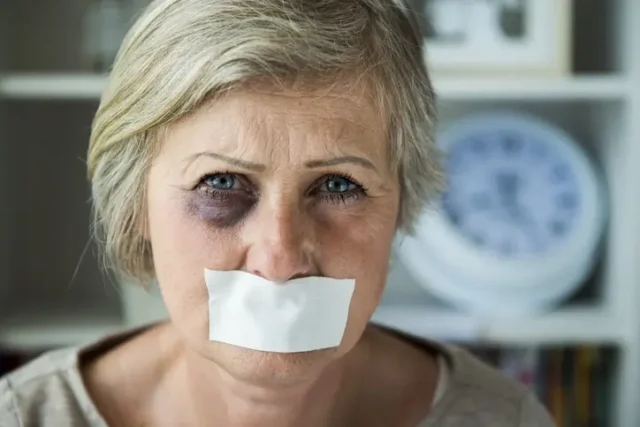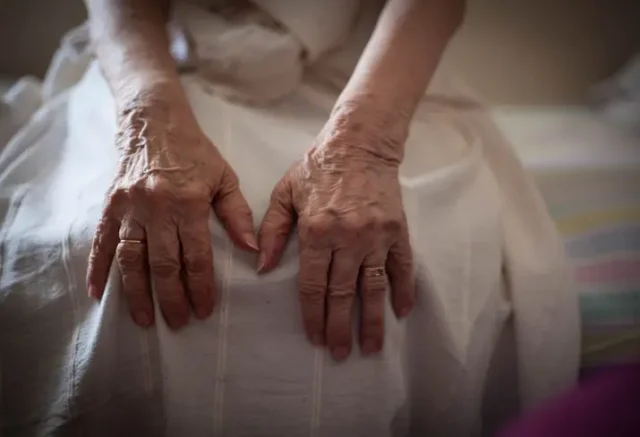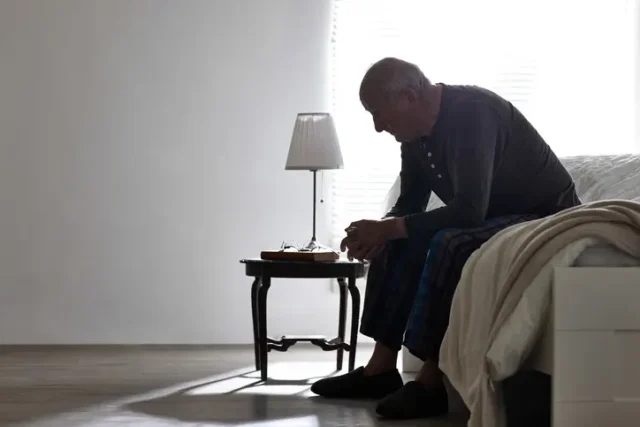About 17.8% of Wyoming’s population is age 65+, requiring responsible nursing home care. However, the state ranks 40th for their long-term care services in the United States. This sadly means nursing home abuse in Wyoming is still rampant throughout the state.
Unfortunately, cases of nursing home abuse are increasing nationwide, owing to a consistent staffing shortage. In fact, the Biden Administration acknowledged the nationwide labor shortage in LTC facilities and is working to help address this problem. Without enough staff, however, the chances of neglect increase exponentially.
To make things worse, many nursing home residents are afraid to report their mistreatment. This means the numbers are potentially even higher than reports indicate. Some studies estimate that as few as 1 out of 14 cases comes to the attention of authorities.
For that reason, it’s very important for nursing home residents and their families to know the signs. Read on to learn how to spot and report nursing home abuse in Wyoming, and when you need legal intervention.
Free Nursing Home Neglect Evaluation
Were you or your loved ones victims of abuse? Click here to speak with a nearby attorney for FREE about your Nursing Home Neglect claim.
or call (888)-927-3080
Wyoming Nursing Home Resident Rights
Every individual living in a Wyoming nursing home has protected federal and state resident rights. It’s vitally important to become aware of these to protect yourself and others from nursing home abuse in Wyoming facilities.
These include the right to a safe home-like environment and to live a dignified existence, along with many others. Every nursing home facility must give new residents a written and oral explanation of their rights. They should also be available upon request during someone’s stay in a LTC facility.
Per Wyoming law (048-8 Wyo. Code R. § 8-8), some of the rights afforded to nursing home residents include the right to:
- Private and unrestricted communication.
- Managing one’s own financial affairs.
- Physical and emotional privacy in treatment, living arrangements, and personal care.
- Participating in social, religious, and community group activities.
- Receiving adequate and appropriate care.
- Freedom from mental and physical abuse.
- Speaking up about grievances without fear of retaliation.
It is particularly important for nursing home residents to know this last right—speaking up is vital.
Sadly, the Long Term Care Community Coalition (LTCCC) finds that saying something is a consistent issue. In their They Make You Pay interviews of abused elders, it becomes clear complaints are frequently met with retribution. As a result, abused nursing home residents often stay silent.
However, no resident in LTC should feel helpless because protection of their safety and dignity is the law.
What is Nursing Home Abuse in Wyoming?
When it comes to the definition of nursing home abuse, there are several categories into which a transgression may fall. Some of these may occur simultaneously so it’s wise to speak with an attorney to determine where your claim fits.
Physical Abuse

Physical abuse occurs when a caretaker or another resident intentionally causes bodily injury to an elderly adult living in LTC. It may show up as bruises, bleeding, broken bones, burns, swelling, and more.
Examples of physical abuse include:
- Punching
- Kicking
- Slapping
- Improper use of restraints (physical and pharmaceutical)
- Intentional refusal of resources
The WHO reported that 64.2% of staff from institutional settings report abusing residents in 2016. They project that nursing home abuse will go up in the near future as populations continue to age.
Emotional Abuse

Elder emotional abuse in a nursing home may be harder to spot since its signs are usually more covert. But the damage is sometimes even more traumatic for victims experiencing such psychological injuries.
Emotional abuse may look like:
- Humiliation
- Degradation
- Harassment
- Intimidation
- Name-calling or put downs
- Isolation from other residents
Sexual Abuse

Unwanted, non-consensual touching of a vulnerable adult is the definition of sexual abuse. Though many people cannot fathom this would happen to someone at a more advanced age, it still does. This is especially true for women and patients with dementia.
In Wyoming, sexual abuse includes:
- Sexual assault
- Rape
- Coercion to perform sexual acts
- Inappropriate advances
- Forced nudity
- Forced observation of sexual acts
Financial Exploitation

Exploitation or financial abuse is unfortunately way too common in nursing homes.
Some of this stems from the fact that many seniors have accumulated substantial assets over their lives. Consistent sources of economic support such as social security, savings and retirement funds make them prime targets for financial gouging.
Sadly, there are unscrupulous caretakers who take advantage of an elder’s trust by directly manipulating their funds.
Examples of exploitation may include:
- Taking belongings or money from a resident’s room
- Unauthorized use of a nursing home resident’s credit, debit, or bank card
- Changing their will or life insurance policy
Neglect

Closely related but slightly different in scope is nursing home neglect. The difference with this type of egregious nursing home conduct is intent.
In most cases, neglect results from inaction or a subpar standard of care rather than outright malice. In other words, it happens because of negligence rather than deliberate infliction of harm.
Regardless of their intentions, however, negligent Wyoming staff may be found at-fault if their actions indirectly hurt those staying in their care.
Specific examples of nursing home neglect may include:
- Failing to provide care, shelter, clothing, or food
- Ignoring an incapacitated or vulnerable adult
- Not performing prescribed necessary medical care for residents
- Refusing to change residents after repeat episodes of incontinence
- Neglecting to bathe residents
- Turning off a call light or routinely not responding to resident requests
Early Signs of Nursing Home Abuse in Wyoming
It’s not uncommon for caregivers or visitors to attempt explaining away signs of abuse as the normal frailty of aging. Accordingly, it’s important to be aware of what abuse looks like so you can stop it before it further escalates.
While the symptoms depend on abuse type, here are some of the clues the Department of Justice suggests you should look for:
- Bruises, black eyes, welts
- Bleeding, cuts, lacerations
- Sprains, dislocations, broken bones
- Unusual changes in sleeping and eating patterns
- Dramatic weight loss
- Emotional upset or agitation
- Personality changes, such as excessive apologizing
- Depression or anxiety
- Unexplained disappearance of funds or possessions
- Untreated bedsores
- Torn or dirty clothing or undergarments
- Unsanitary or unclean living conditions
Try to keep lines of communication open if you have a loved one in a Wyoming nursing home. The Wyoming Department of Health suggests regularly calling or visiting older adults and asking how they’re doing. You want them to feel comfortable sharing openly with you about the kind of care they are (or are not) receiving.
Many seniors hesitate to share their thoughts because they assume it’s standard treatment, or they don’t want to cause problems. Make sure they know you’re a safe space and that they can be honest with you. And don’t hesitate to report any suspicions of abuse you observe.
Wyoming Resources to Report Nursing Home Abuse
If you encounter nursing home abuse in Wyoming—or anywhere for that matter—knowing how to respond is crucial. If you believe someone is in immediate danger, call 911 for emergency assistance. Never overlook this if it’s needed, as nursing home abuse can escalate quickly.
Next, if it’s possible, address it with the nursing home management since they have a responsibility to address such concerns. This proves to the court that you alerted the nursing home beforehand, but staff refused to respond to the abuse. However, there are cases where reporting to the LTC facility is pointless since they’re part of the issue.
Fortunately, there are many other outside organizations poised to help investigate your claims. Wyoming laws are set up in such a manner that you can report abuse even if you just suspect it.
“Any person or agency who knows or has reasonable cause to believe that a vulnerable adult is being or has been abused, neglected, exploited, intimidated or abandoned or is committing self neglect shall report the information immediately to a law enforcement agency or the department. Anyone who in good faith makes a report pursuant to this section is immune from civil liability for making the report.”
You won’t be retaliated against by making a report of suspected abuse in Wyoming nursing home law. Remember this right, and tell your loved one their rights as well.
What Information You’ll Need to Make a Report
Before reporting suspected nursing home abuse, Wyo. Stat. § 35-20-103 asks you to collect as much of the following info as possible:
- Name, age, and address of the vulnerable adult
- Name and address of any person responsible for the victim’s care
- Nature and extent of the elder’s condition
- The basis for your knowledge of this situation or incident
- The adequacy of the LTC facility’s environment and care
- Any evidence of previous injuries (for the victim or other residents in the same facility)
The more information you can gather, the easier it will be for investigations to swiftly proceed. Sufficient evidence will also affect the settlement amount you’re awarded at the end of your lawsuit.
Wyoming Department of Family Services/Adult Protective Services
Individuals suspecting nursing home abuse in Wyoming should make reports to their local Department of Family Services office. You can do this in person or by phone, and it’s possible to stay anonymous.
To find your local APS point person, click here, or visit the DFS website for more information. You may also call a representative if the internet is not an option.
Wyoming Ombudsman
Another important resource to know about is the official Wyoming Long-Term Care Ombudsman Program.
An ombudsman is a person who investigates and attempts to solve issues in LTC facilities on behalf of residents. In Wyoming, the Department of Health works with Wyoming Senior Citizens Inc. to provide ombudsmen across the state.
Types of Damages You Can Receive Through a Claim
Another avenue you should consider is legal action, especially if the abuse results in substantial losses and harm.
You will definitely want to speak to a skilled nursing home abuse attorney before pursuing a claim in this manner. They can help determine your cases’ area of abuse and the types of damages you should seek.
In general, with cases surrounding nursing home abuse in Wyoming, a judge or jury might award compensatory and/or punitive damages.
Compensatory Damages
Compensatory damages are financial payouts for “actual” damages resulting from the incident.
These may be in the form of economic damages, like medical bills or money lost via financial exploitation. Or they may be non-economic damages like pain and suffering or emotional distress.
Punitive Damages
Unlike compensatory damages, punitive damages are not in place to make up for tangible losses. Instead, they’re a way to dissuade the perpetrator (and others who might consider such actions) from ever abusing again. It’s financial punishment for a defendant’s egregious behavior.
For a punitive claim to succeed, there must be clear evidence that the defendant was acting with intent to harm. Meaning, they knew what they were doing and the damages stem from their malicious actions.
Wyoming Statute of Limitations
Wyoming has a very lengthy statute of limitations for filing nursing home abuse cases. You have four years from the date of the incident to log a legal claim.
While that may make it seem like there isn’t pressure to meet with an attorney right away, don’t wait. The most successful case settlements come when the details are still fresh and provable.
In wrongful death claims, the statute of limitations cuts down to two years from the date of the victim’s passing. Accordingly, these cases have even more impetus for expedited filings with the court.
LegalASAP Can Help You Find a Local Nursing Home Attorney
Though there are only 35 nursing homes in Wyoming, there have been $792,000 in recent fines against facilities after inspections. While LTC facilities may be trying to meet the demands of an ever-increasing elderly population, sometimes they fall short.
If you find yourself in a situation where nursing home abuse seems evident, consider consulting with a lawyer. LegalASAP’s network of 500+ law firms across the United States may help connect you with representation in Wyoming. Because no one should be suffering where they live, whether their home is on the range or elsewhere.
Kimberly Dawn Neumann
Kimberly Dawn Neumann is a multi-published NYC-based magazine and book writer whose work has appeared in a wide variety of publications ranging from Forbes to Cosmopolitan. She graduated summa cum laude from the University of Maryland, College of Journalism. For more, visit: www.KDNeumann.com or Instagram @dancerscribe.


